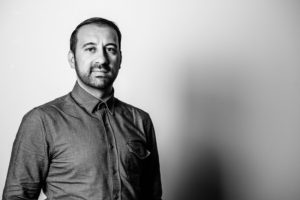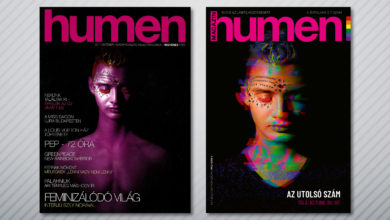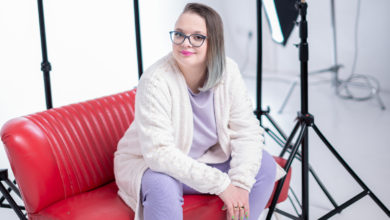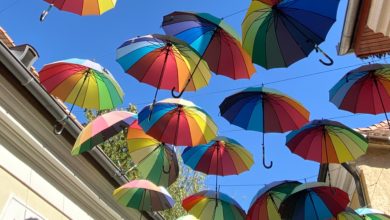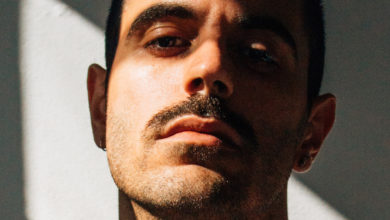Bringing Roma LGBTQI issues to light
A granted fellowship program awaits for people who want to make a change.
Roma LGBTQIA issues are still considered taboos and invisibility in several European countries and in the Balkan. The Community Youth Fellowships of the Open Society Foundations are opening a fellowship program encouraging people to implement different programs in order to bring light to the problematic issues, which the society never hears or discussed about before. The 18-months long program provides monthly grant for the fellows. The goal is simple: bringing and lighting up changes.
What are the main problems for the Roma LGBTQIA people?
“There are social and economic challenges in Roma people’s lives that are rarely or never discussed” – says Dezso Mate, the advisor of the fellowship program, organised by the Community Youth Fellowships of the Open Society Foundations. The fellowship program wants to bring forward the questions and topics related to the Roma and LGBTQIA people’s situation in six countries: Hungary, Macedonia, Romania, Serbia, Slovakia and the Czech Republic.
Roma LGBQIA people also face with several issues related to their daily life not only from the majority society but they meet with different multiplied oppressions from their own communities as well, like from the Roma and from the majority LGBTQIA communities too.
There’s a great amount of homophobia and transphobia in the Roma community, as there’s also a worrying amount of racism and xenophobia in the LGBTQIA community. Roma LGBTQIA people don’t get enough recognition from the state and from the LGBTQIA organisations. Roma organisations don’t care about the topics related to LGBTQI persons challenges either. We do not talk about the Roma LGBTQIA people lack of access to healthcare in the term of intersection. We do not talk about the different gender oppressions between and within the communities. We do not talk neither about the rights of the Roma LGBTQIA sex-workers; and so on so on…
People still think that it’s a topic that should not be talked about, since the current situation makes self-acceptance and coming out difficult for young Roma people. Lot of Roma LGBTQIA people still can’t express openly their multiplied identity – for example, there is questions why a transgender Roma person still excluded from the public social life, as it happened sever years ago during the Budapest Pride After Party. Their will at the entrance was refused in the party door. The question is why they had the refusal. Because it’s not okay to be Roma? It’s not okay to be transgender? Or just the two identities together are too much even for the LGBTQIA community? These are just few slides of their identities, and we still did not talk about the different religions identities, as it visible in the in the Balkan. Outstanding issue as well, that the society mixing up the gender and the LGBTQIA identities. How we can see, there are a lot of questions which need to be answered.
What’s this fellowship about?
The Community Youth Fellowships will support dynamic youth activists aged 18 to 30 who want to implement a project of their own design that acknowledges the intersection between the LGBTQIA (Lesbian, Gay, Bisexual, Transgender, Queer, Intersex, Asexual) and Roma communities, and the multiple layers and forms of discrimination this community faces in healthcare settings. The projects we seek to support could focus on any area of health rights relevant to the young Roma LGBTQIA community, including sexuality, reproductive rights, disability, quality of life, and access to health care services.
Who can apply?
The fellowship is open to everyone. The program welcoming Roma LGBTQIA, non-Roma LGBTQIA, non-LGBTQIA Roma, and non-LGBTQIA non-Roma persons applications.
The applicants can apply with a lack of educational background, and with lack of English langue knowledge. Everyone’s applications are welcomed on their own country specific or Romani languages as well. Applicants can only submit a single written or recorded letter of intent for a single proposed project.
The fellowship program looking for fellows who want to make a change and have enough courage, energy and fantasy to organise programs, panels, talks or press that would bring up serious issues about Roma LGBTQIA people. Applications are welcome from all the six countries and there could be more than one fellow from each country.
All the applications and fellows are protected. If the winner doesn’t want to make any public appearances during the project, their decision would be respected.
What are the financial benefits?
The winners will get a generous grant for their work. Applicants are strongly encouraged to identify at least one person who will provide them with advice, guidance, and support on a consistent basis throughout the project — someone who would be considered the applicant’s mentor, supervisor, or “champion.” This person can be, but is not required to be, from a host organization. In this case the mentors and the host organizations work will have different supports and benefits as well.
Where can I apply?
To apply, applicants must complete the online form by January 10, 2018 (11:59 CET). Once registered, applicants will be able to proceed to the application itself, and upload the following documents:
- Resume or bio: No more than two pages
- Letter of intent: A single-spaced letter of intent (maximum two pages) structured according to the template you will find online. The letter of intent can be submitted instead as a video or sound recording (maximum four minutes) covering the same points in the template
Applicants can only submit a single written or recorded letter of intent for a single proposed project.
All proposals are accepted by invitation only.
Complete guidelines in English, Romani, Czech, Slovak, Hungarian, Romanian, Serbian, and Macedonian are available in the Download Files section on this page. If you have questions or experience technical difficulties with the online application form, please contact the Youth Exchange at youth.exchange@opensocietyfoundations.org.
Kanicsár Ádám András
Instagram: @kanicsar


